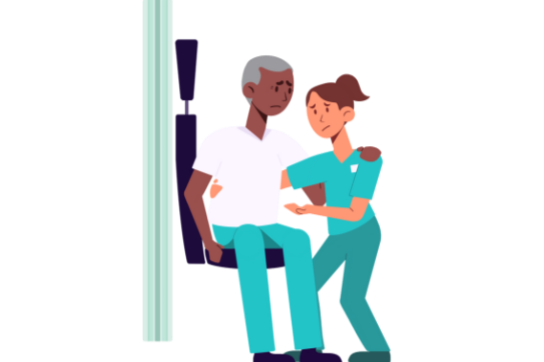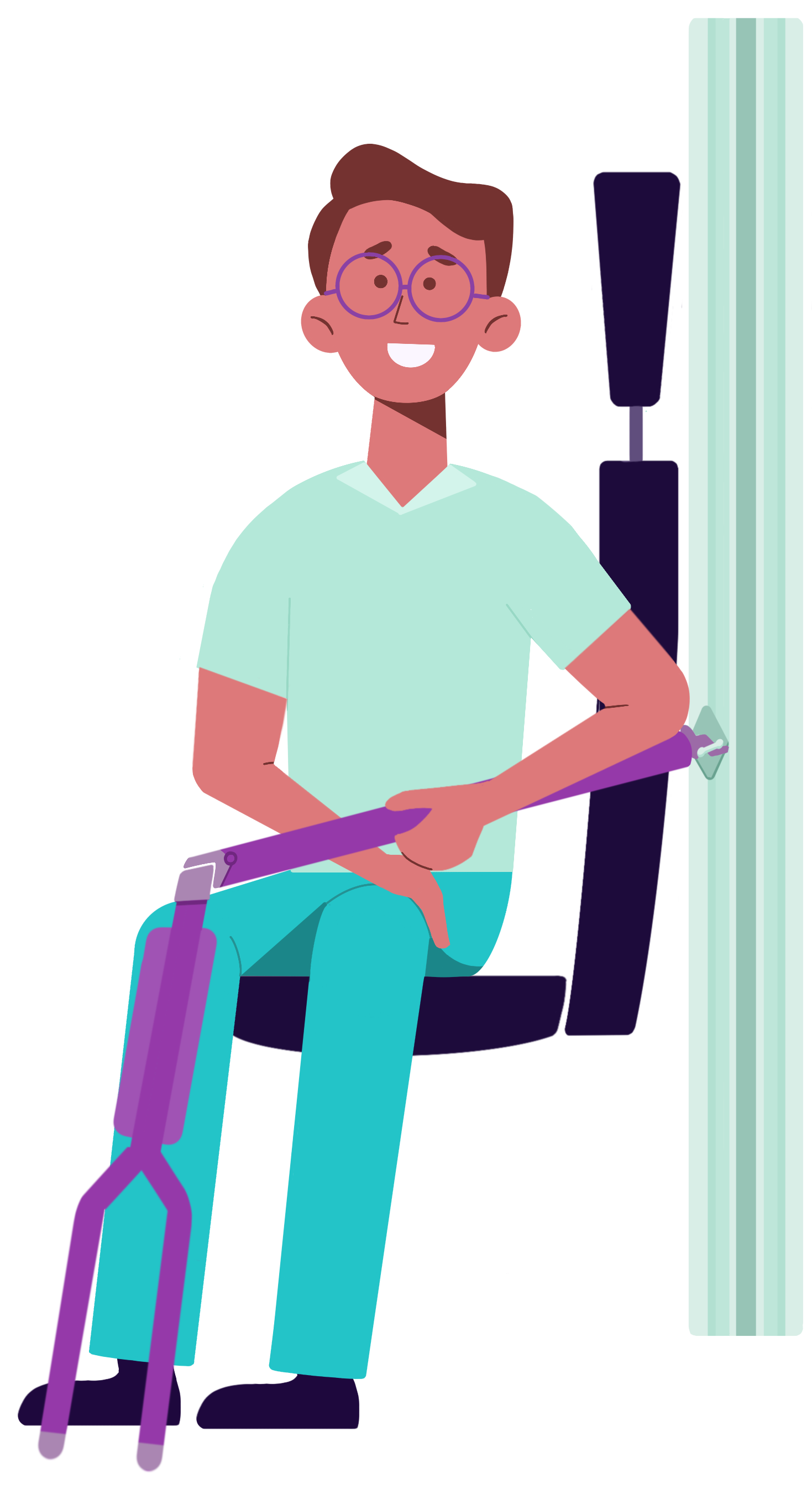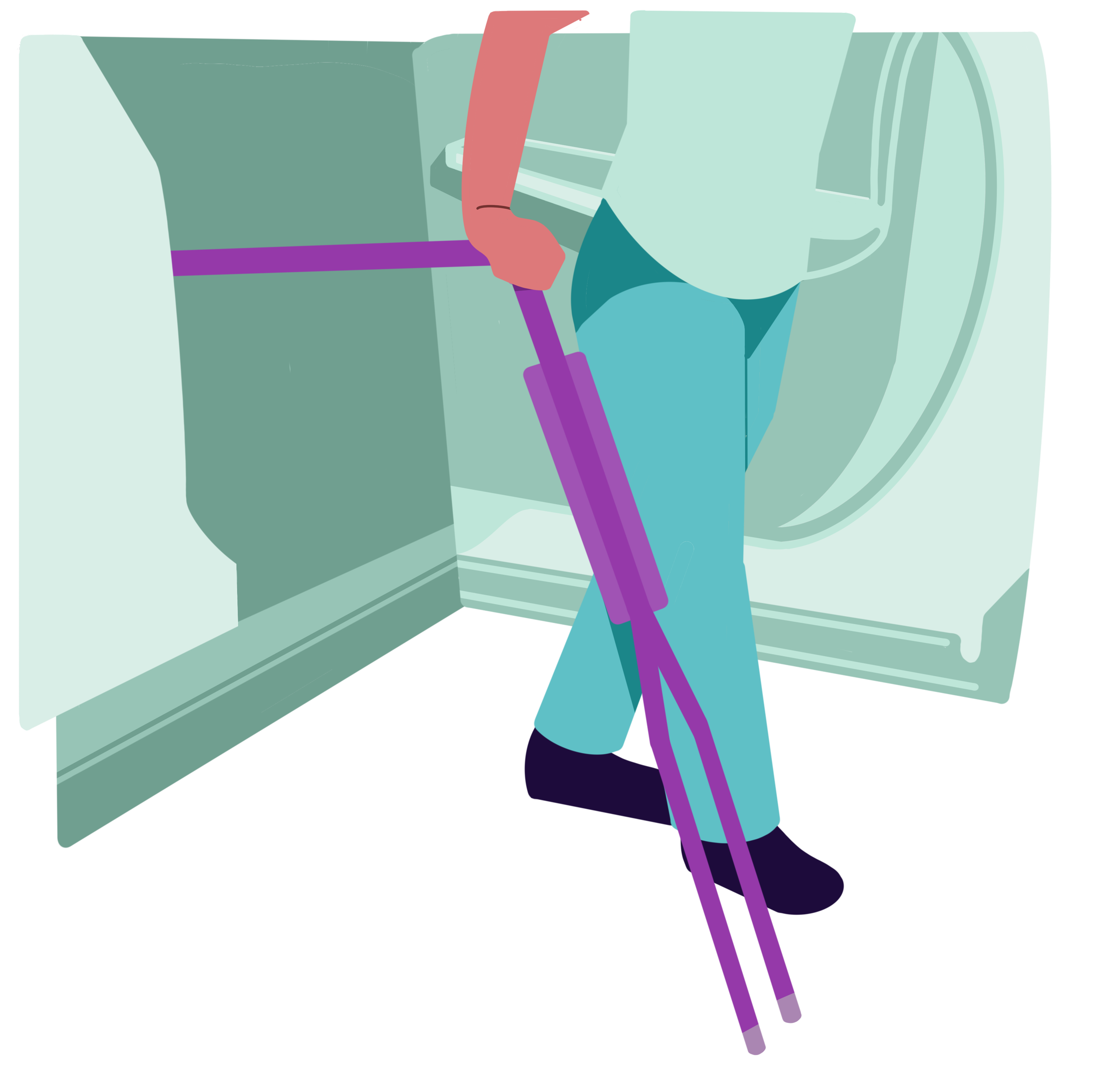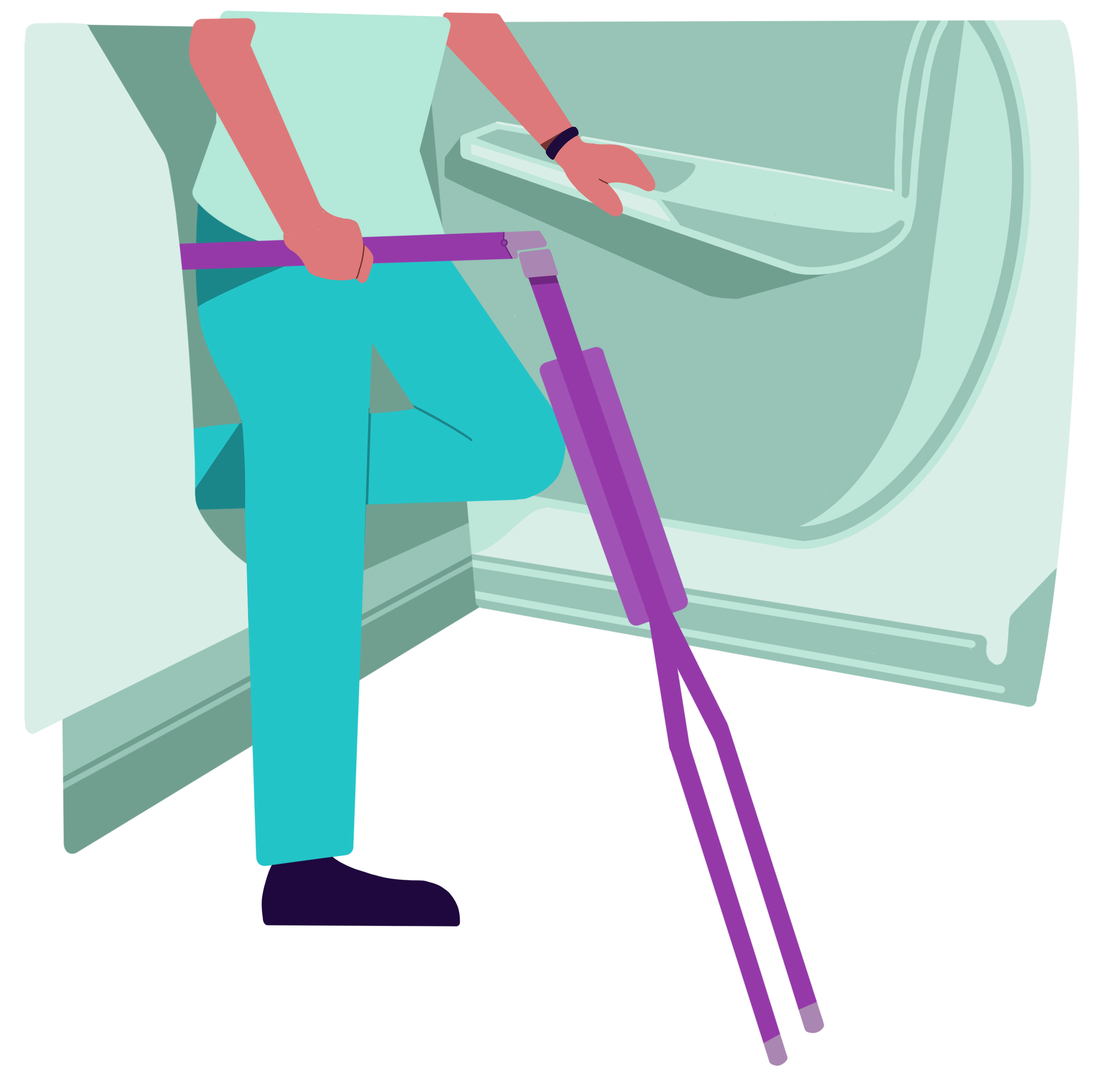
STEPPING
FORWARD
The Challenge
Solving the problem of vehicle mobility support, especially for medical outpatients, individuals undergoing rehabilitation, and those facing physical stability challenges, because it directly impacts their risk of injury, dignity, and independence. We understood that it took an average of 10 minutes to get a patient into or out of a car with the aid of a caregiver such as an Occupational Therapist, nurse or family member. Challenges are only intensified when an individual is without a strong caregiver to assist or has no one at all, especially when using ride share transportation.
Care Recipient: Aging Populations, Outpatients, or Chronic Illness patients
Solving the problem of vehicle mobility is critical, especially for medical outpatients, individuals undergoing rehabilitation, and those facing physical stability challenges, because it directly impacts their safety, dignity, and access to care. Addressing this gap is essential to ensure equitable, efficient, and dignified transportation for those who need it most.
The Problem Faced:
People with stability challenges due to weakened mobility or muscles, or recovering from an injury or surgery, may find it difficult to enter and exit a vehicle.
Transportation deficits stemming from physical mobility or accessibility are recognized as major social determinants of health, especially among disabled, elderly, and outpatients..
Many older adults lose the ability to drive, increasing dependence on family caregivers.
1 in 5 Patients with limited non-public transportation miss appointments due to multiple factors, including the inability to have support from a caregiver to be mobile physically.
How Cargility Can Help
-

Care For Caregivers
Caregivers can reduce their own concerns of injury or strain when helping patients, family, or anyone struggling with instability.
-

Needing Stability
To individuals experiencing instability or affected mobility as they age or due to medical challenges.
-

Healing & Recovery
Individuals recovering from an outpatient surgery, rehabilitation, or recovering from injury can have confidence in support and stability with a vehicle.
-

Added Challenges
Individuals are facing medical conditions that may lead to instability.
The Caregiver Challenge
-

Strain & Fatigue
Routine processes such as vehicle transferring or repositioning patients can cause physical strain for caregivers, leading to fatigue.
-

Back Strain & Injury
Moving in tight spaces while lifting, twisting, or supporting a person's weight can lead to awkward body positions causing back injuries or joint strain for the Caregiver.
-

Joint & Muscle Strain
Bending or twisting a person during care can increase joint strain and contribute to injury or chronic pain for both the caregiver and the patient.
-

Risk of Falling
Awkward movements and certain surfaces can significantly increase the risk of falls for both caregivers and those they assist.
Cargility understands that life moves fast and sometimes people need help keeping up. Getting in and out of the car is the first step to regaining greater independence and with Cargility, we offer a solution to taking that first step with confidence and stability.
Caregivers at outpatient centers, senior centers, and directly with people facing stability challenges, we learned that a lack of solutions is available and the need to rely on makeshift workarounds. We understood that it took an average of 10 minutes to get a patient into or out of a car with the aid of a caregiver such as an Occupational Therapist, nurse, or family member. Challenges only increase when an individual is without a strong caregiver to assist or has no one at all, especially when using rideshare transportation.



